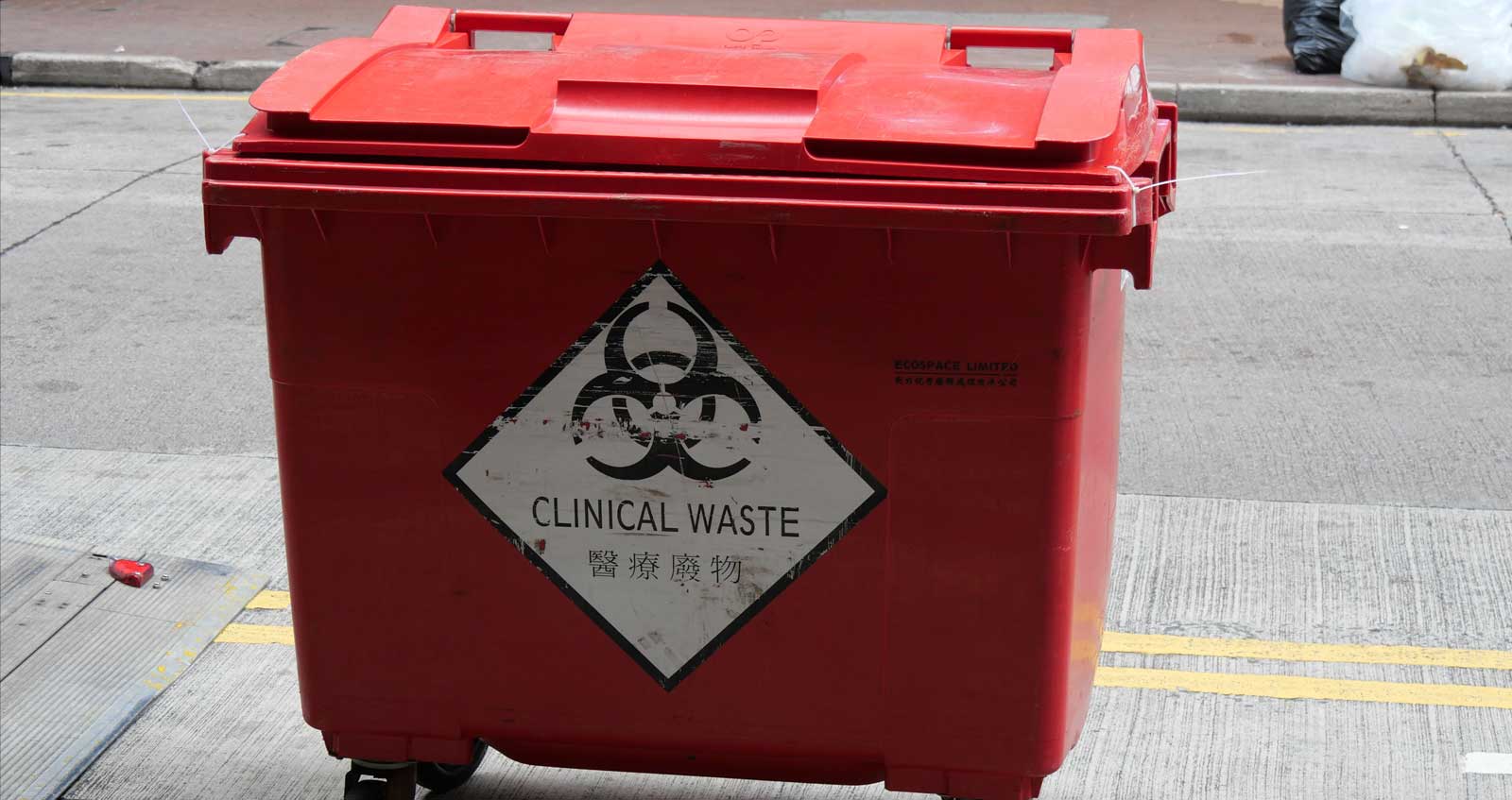Ease at Your Doorstep: Locating Reliable Medical Waste Removal Near Me
Ease at Your Doorstep: Locating Reliable Medical Waste Removal Near Me
Blog Article
Discovering Various Garbage Disposal Options for a Cleanser Environment
In the quest of a cleaner setting, the management of waste disposal has actually arised as a vital focal factor for sustainable growth. With a plethora of waste disposal choices offered, ranging from standard land fill techniques to ingenious waste-to-energy technologies, the option of exactly how we handle our waste has far-reaching ramifications for our world's health.
Recycling Approaches
Executing efficient recycling techniques is important in minimizing waste and promoting sustainability in our atmosphere. Reusing entails the process of converting waste materials right into recyclable items to stop unneeded disposal.
An additional vital recycling method is composting, which includes disintegrating organic waste like food scraps and yard trimmings into nutrient-rich soil. This process not only diverts natural waste from landfills yet likewise creates an important resource for gardening and farming. Additionally, upcycling is an imaginative recycling method that involves changing old or thrown out materials into items of better or worth. By incorporating these various recycling methods into our waste monitoring practices, we can considerably lower our ecological footprint and move in the direction of a much more lasting future.

Composting Methods
Reliable waste administration techniques, such as recycling techniques, pave the way for a cleaner setting, and now, changing the emphasis to 'Composting Techniques', we explore sustainable methods to disintegrate natural waste for environmental advantage. medical waste removal service.
Composting is a natural process that transforms organic waste, like food scraps and yard trimmings, right into a nutrient-rich soil change. The key to effective composting depends on producing the appropriate equilibrium of green products, such as fruit and veggie scraps, and brownish materials, like dried out leaves and twigs. These products break down with the aid of bacteria, breaking down the waste right into valuable compost.
Standard yard composting includes layering natural products in a container or stack and consistently transforming the mixture to freshen it. By using composting techniques, we can reduce the amount of waste sent out to landfills while producing a useful product for enhancing dirt and supporting plant development.
Incineration Disadvantages and pros
Incineration, as a waste disposal technique, provides both benefits and downsides that merit careful consideration in the realm of sustainable waste administration methods. On the positive side, incineration can considerably reduce the quantity of waste, decreasing the need for garbage dump space and potentially reducing greenhouse gas emissions.
Additionally, the high preliminary investment and operational costs of incineration facilities present description financial difficulties, making it a much less affordable alternative contrasted to other waste monitoring strategies. Mindful surveillance and policy are crucial to reduce these negative effects and optimize the benefits of incineration as part of a detailed waste administration strategy.
Landfill Administration Strategies
Landfills play a vital function in waste administration and ecological conservation by giving a control system for the disposal of solid waste materials. By condensing the waste, the volume is minimized, permitting for even more waste to be fit over time.
Additionally, the execution of everyday cover methods is essential in reducing smells, stopping litter, and minimizing the destination of insects. Covering the disposed waste at the end of daily aids to contain smells and prevent prospective environmental contamination. In addition, the surveillance of land fill gas discharges and leachate levels is vital in ensuring that ecological requirements are met and that any kind of prospective risks to surrounding environments are minimized.
Waste-to-Energy Technologies
Among the cutting-edge methods to waste management involves using Waste-to-Energy innovations to convert strong waste right into functional energy sources. Waste-to-Energy (WtE) technologies include a series of procedures that intend to remove energy from waste products with thermal, chemical, or organic methods. This conversion process not only reduces the volume of waste that finishes up in garbage dumps yet also creates valuable energy resources such as electrical power, warm, or biofuels.
There are several approaches of Waste-to-Energy conversion, consisting of gasification, pyrolysis, and incineration. Incineration involves shedding waste at heats to create warm and power. Gasification transforms waste into a syngas, which can be utilized for power generation or chemical manufacturing. Pyrolysis breaks down organic materials making use of high temperature levels in the lack of oxygen, creating gas, bio-oil, and char.
Implementing Waste-to-Energy modern technologies can assist alleviate ecological issues related to traditional waste disposal methods while at the same time giving a renewable resource source. Cautious factor to consider must be given to discharges control and making sure the sustainability of feedstock materials for these innovations to be really beneficial for a cleaner environment.
.jpg)
Final Thought
In final thought, exploring various waste disposal options such as reusing, composting, incineration, landfill management, and waste-to-energy technologies is necessary for promoting a cleaner setting - click here. Each approach has its own benefits and difficulties, yet by making use of a mix of these methods, we can function towards decreasing the quantity of waste that winds up in landfills and ultimately add to a much more lasting future for generations to come
With a wide range of waste disposal choices readily available, varying from conventional landfill techniques to ingenious waste-to-energy technologies, the selection of how we manage our waste has significant effects for our planet's well-being. medical waste removal.Incineration, as a waste disposal method, offers both benefits and downsides that merit careful factor to consider in the realm of sustainable waste monitoring practices.Garbage dumps play a critical function in waste administration and environmental preservation by supplying a containment system for the disposal of strong waste products. By compacting the waste, the quantity is minimized, enabling for more waste to be suited over time
One of the cutting-edge techniques to waste administration entails harnessing Waste-to-Energy modern technologies to convert solid waste right into functional energy resources.
Report this page